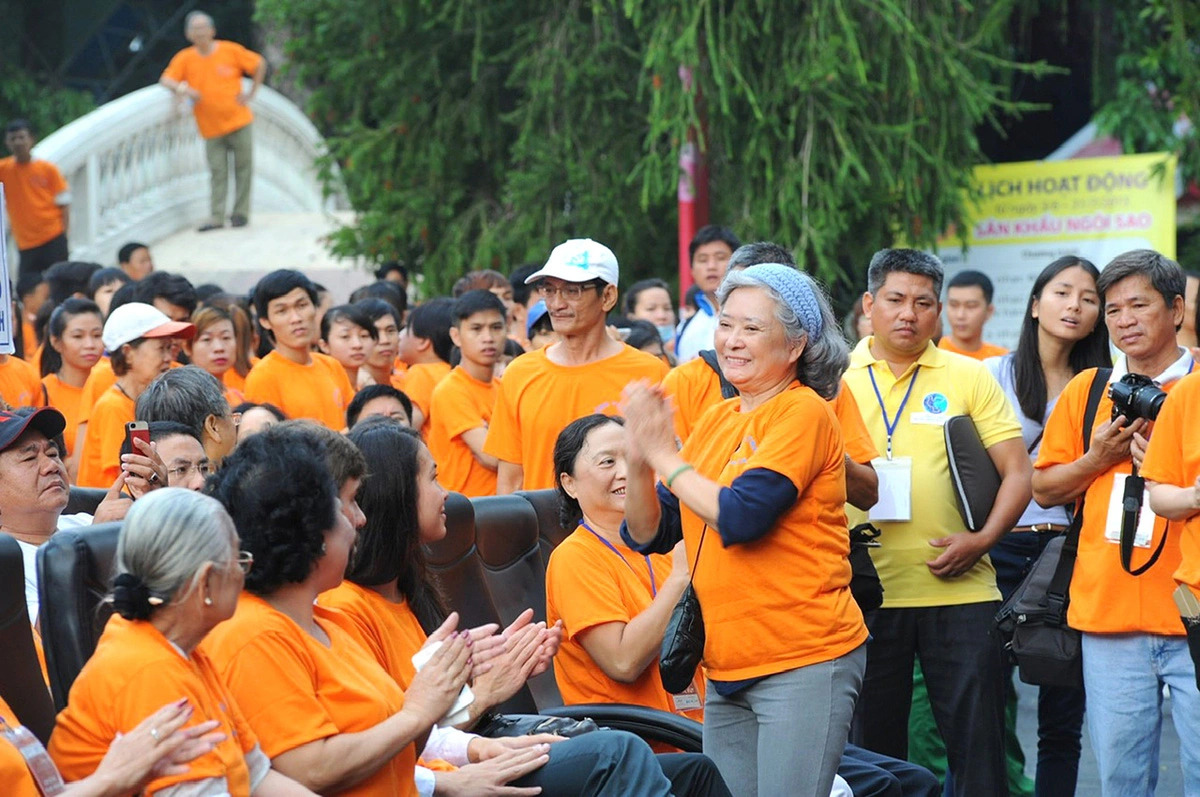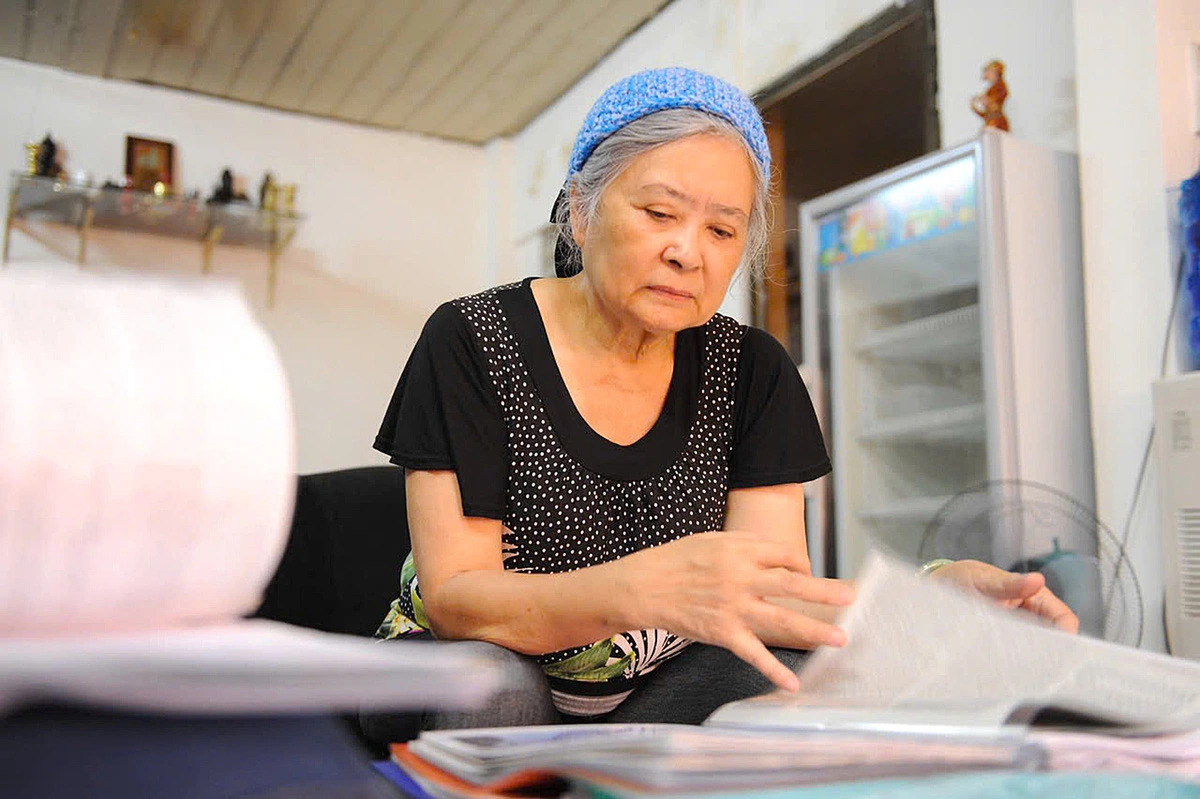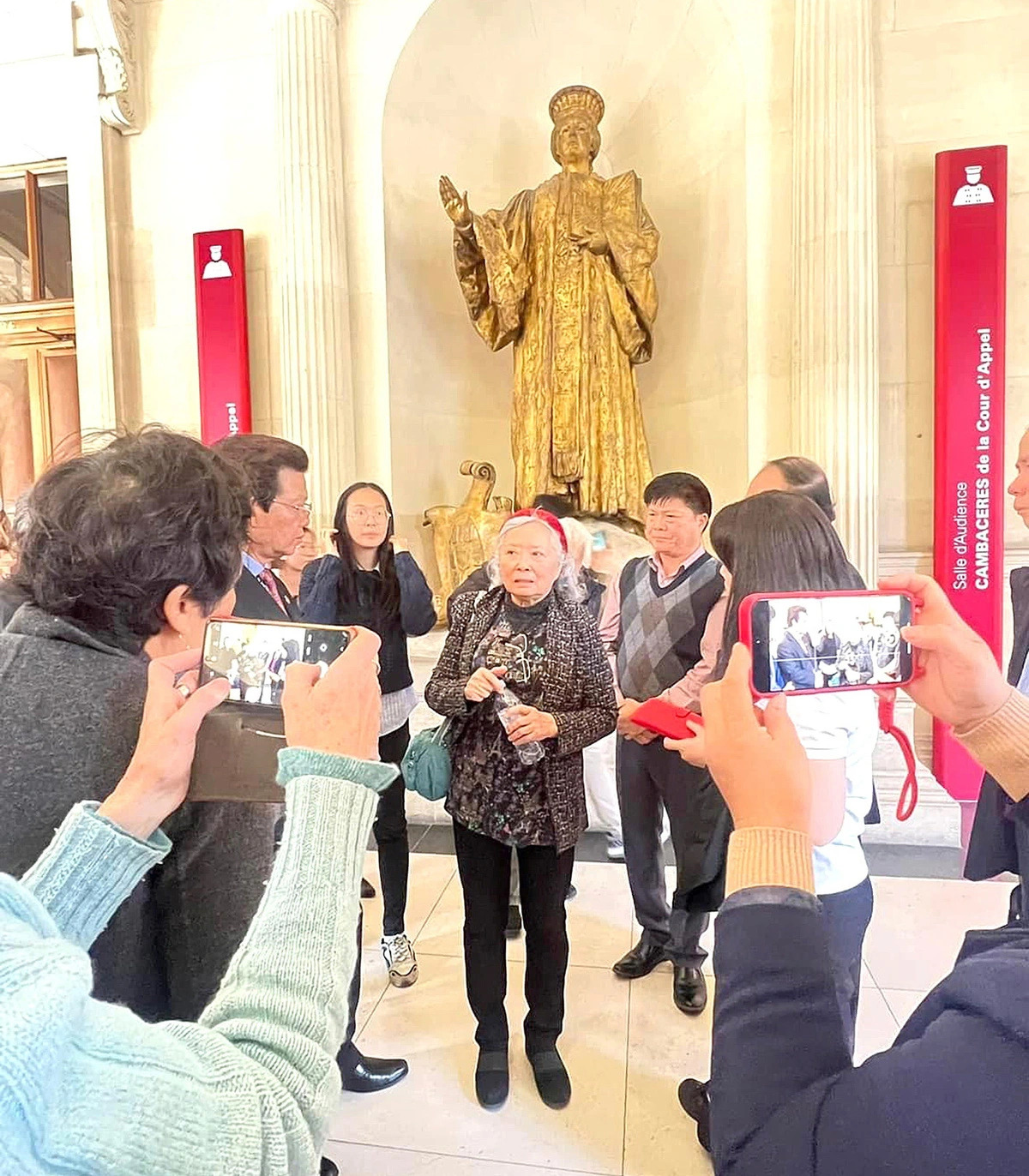Editor’s note: This article was written by Truong Trong Nghia, a reader of the online publication of Tuoi Tre (Youth) newspaper, expressing his thoughts over the Paris Court of Appeal's decision on August 22 to reject the civil lawsuit filed by Tran To Nga, an 82-year-old French-Vietnamese woman, against 14 U.S. chemical companies for supplying Agent Orange (AO)/dioxin to the U.S. army during the war in Vietnam. His story was translated and edited by Tuoi Tre News.
I am resentful toward the cold tone of the Paris Court of Appeal’s judgment for Tran To Nga’s appeal, and I am also livid at their order, forcing her to pay each American defendant company 1,500 euros (US$1,671)!
The judges are aware of the support behind Nga from more than four million Vietnamese people, including hundreds of thousands of children, who suffer daily pains from AO/dioxin and have had their futures ruined by diseases as a result of the toxic herbicide sprayed by the U.S. in Vietnam during wartime.
Biased ruling
The ruling is foundationally biased as it reproduces the arguments brought forward in the March 10, 2005 verdict of the Federal Court of the Eastern District of New York, which rejected the lawsuit initiated by Vietnamese AO/dioxin victims.
The Paris Appeal Court’s verdict cited a decision of the Federal Court of the Eastern District of New York dated February 9, 2004 as saying that the government knew that alternative manufacturing processes could have minimized the presence of dioxin in AO. However, in the process of promoting maximum production of AO for use as a tool of war, the government prohibited the defendant American companies (Monsanto, Dow Chemical, Occidental Chemical, THAN) from using alternative manufacturing technologies, resulting in high levels of dioxin in AO production.
The Paris appeal court ruling defended the defendant firms by attributing the responsibility for AO/dioxin use to the U.S. government. The court rejected Nga’s appeal, ruling that the defendants were legally protected from prosecution under international law as they were acting under the directives and interests of the U.S. government.
Citing a customary principle that says all countries are equal, the Paris appeal court argued that no country can be judged by another when defending its independence and sovereignty.
During the war in Vietnam, everybody knew that the U.S.’s independence and sovereignty were not threatened by Vietnam or any other country. On the contrary, the Democratic Republic of Vietnam was the nation whose sovereignty was threatened and violated!
The Paris Court of Appeal's use of the aforementioned customary principle as a legal basis is also a subject of consideration.
The appeal ruling said that under the auspices of the United Nations (UN), a ‘UN Convention on Jurisdictional Immunities of States and Their Property’ was adopted in New York on December 2, 2004.
France signed the convention on January 17, 2007, and ratified it on August 12, 2011. However, it has not yet taken effect as it has not been ratified by the required 30 countries. Despite this, the Paris appeal court cited the convention, asserting that France considered it part of customary law.
Another questionable legal issue is the legal immunity of multinational corporations if they have participated in acts of a ‘war crime’ for profit.
The ruling argued that the manufacturers had no discretion in fulfilling orders. The composition of AO was explicitly defined, and the presence of dioxin was a result of the formula mandated by the U.S. government. The companies were acting solely on the orders and in the interests of the U.S.
In the judgment, the Paris Court of Appeal refers to ‘orders’ and ‘contracts,’ which fail to adhere to American, French, and international civil laws which do not allow the imposition of the will of a 'party' in civil agreements.
The evidence is unequivocal: all the defendants were aware that Agent Orange ordered by the government contained high levels of dioxin, which would be sprayed over millions of acres of forest and rice fields in Vietnam and Indochina. They knew that dioxin is a poison that causes death, cancer, and birth defects in humans exposed to it.
|
|
| Tran To Nga is seen reading documents. Photo: Tu Trung / Tuoi Tre |
Despite the appeal ruling referencing U.S. defense law, it is well known that in the U.S., capitalist giants cannot be compelled to participate in crimes against their will. The defendants, with their top lawyers, had numerous avenues to refuse the use of AO/dioxin under both U.S. and international law, or at the very least, to negotiate for a reduction in dioxin content. Instead, they chose not to refuse and actively supplied 20 million gallons of the lethal chemical, with 18 million gallons being sprayed in Vietnam.
Unjust judgment
During these war years, many scientific investigations into the dangers of Agent Orange were conducted but were obstructed and restricted by the U.S. government. So the AO spraying campaign in Vietnam, known as 'Operation Ranch Hand,' continued unabated.
When the war finished, many American people, led by veterans, initiated lawsuits demanding that the U.S. government compensate Americans who were exposed to dioxin while fighting in Vietnam.
Dr. James Clary, one of the drafters of the plan for the Agent Orange spraying campaign in Vietnam, in 1988 wrote a letter to U.S. Senator Tom Daschle, who was investigating the AO issue at that time.
|
|
| Tran To Nga (C), a Vietnamese AO victim, is seen among her international friends after the Paris Court of Appeal in France released its ruling rejecting her appeal against 14 American chemical firms. Photo: Tu Trung / Tuoi Tre |
The letter reads, “When we [military scientists] initiated the herbicide program in the 1960s, we were aware of the potential for damage due to dioxin contamination in the herbicide. We were even aware that the military formulation had a higher dioxin concentration than the ‘civilian’ version due to the lower cost and speed of manufacture. However, because the material was to be used on the ‘enemy,’ none of us were overly concerned. We never considered a scenario in which our own personnel would become contaminated with the herbicide.”
In light of the clear research findings, the U.S. Surgeon General banned the use of AO/dioxin in the U.S. in 1971. Consequently, all herbicide activities involving AO/dioxin in Vietnam were halted on June 30, 1971.
On April 8, 1975, U.S. President Gerald Ford issued Executive Order 11859 to abandon the use of herbicides in war, and in 1991, President George H. W. Bush signed the Agent Orange Act saying that some diseases related to AO and other herbicides are considered as consequences of defense service but this only applies to U.S. veterans.
The fact that U.S. courts showed bias in favor of the U.S. government, and that the government prioritized American veterans, constitutes an injustice to the Vietnamese victims.
Recognizing this reality, the U.S. government has taken steps to address the issue. In 2006, the U.S. Congress decided to officially engage in resolving the consequences of AO/dioxin in Vietnam. Since 2007, the U.S. has provided hundreds of millions of dollars in non-refundable aid or official development assistance (ODA) to support remedial efforts in Vietnam.
Meanwhile, at the Paris Court of Appeal, Nga’s compensation requests were so modest yet rejected and she was even forced to pay compensation to the defendants who are global giants in chemical manufacturing and trading.
I am not involved in the lawsuit in any capacity, nor am I writing this article as a lawyer or a member of any law firm. I speak out as a Vietnamese citizen, a friend of Tran To Nga, who shares the suffering of AO victims in my country and in the U.S., who loves the noble qualities of the French people, and who loves the beautiful country of France that is both ancient and modern, where I have many close friends and which I visit almost every year.
I urge the French Court of Cassation to overturn this biased and unfair appellate judgment to secure justice for the more than four million Vietnamese Agent Orange victims, including Nga.
The French court should uphold France’s noble motto, 'Liberty, Equality, Fraternity,' by applying 'the customary rule of equity' to accept Nga’s requests.
Like us on Facebook or follow us on Twitter to get the latest news about Vietnam!



















































